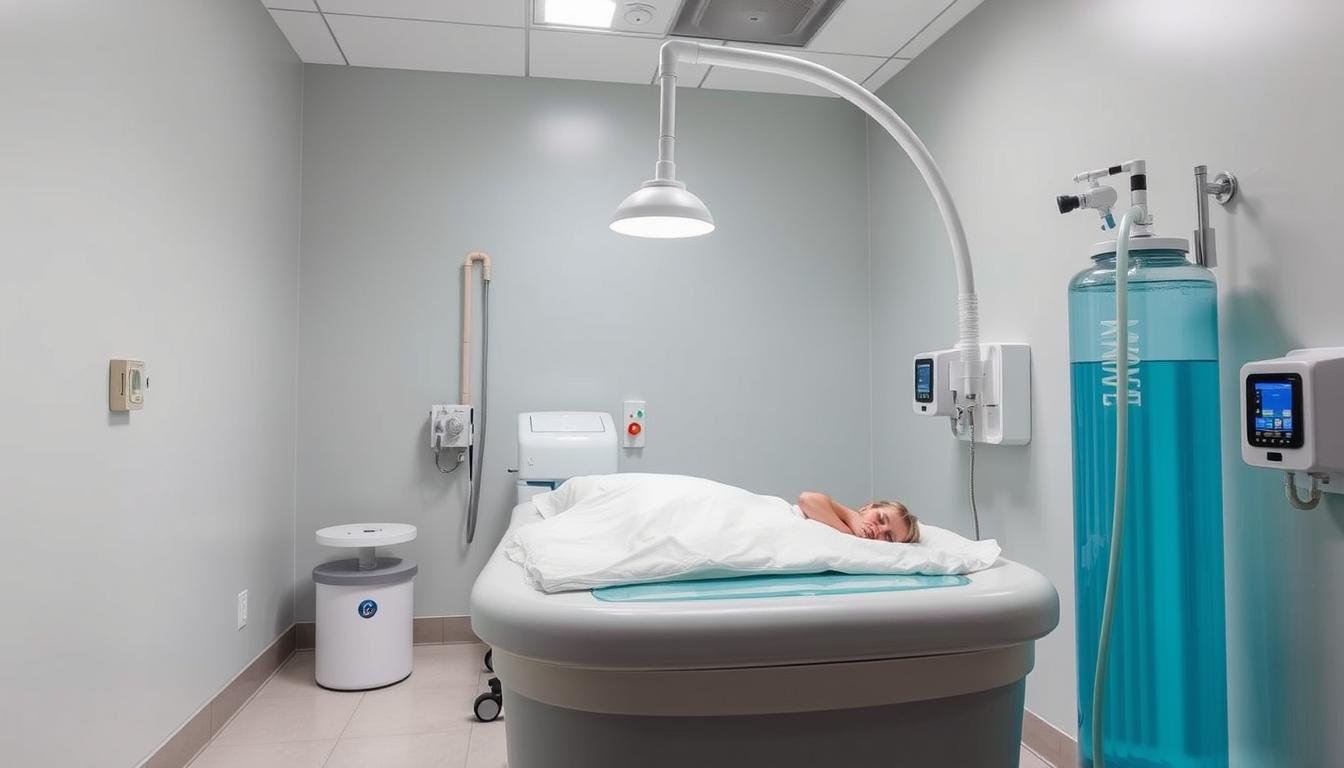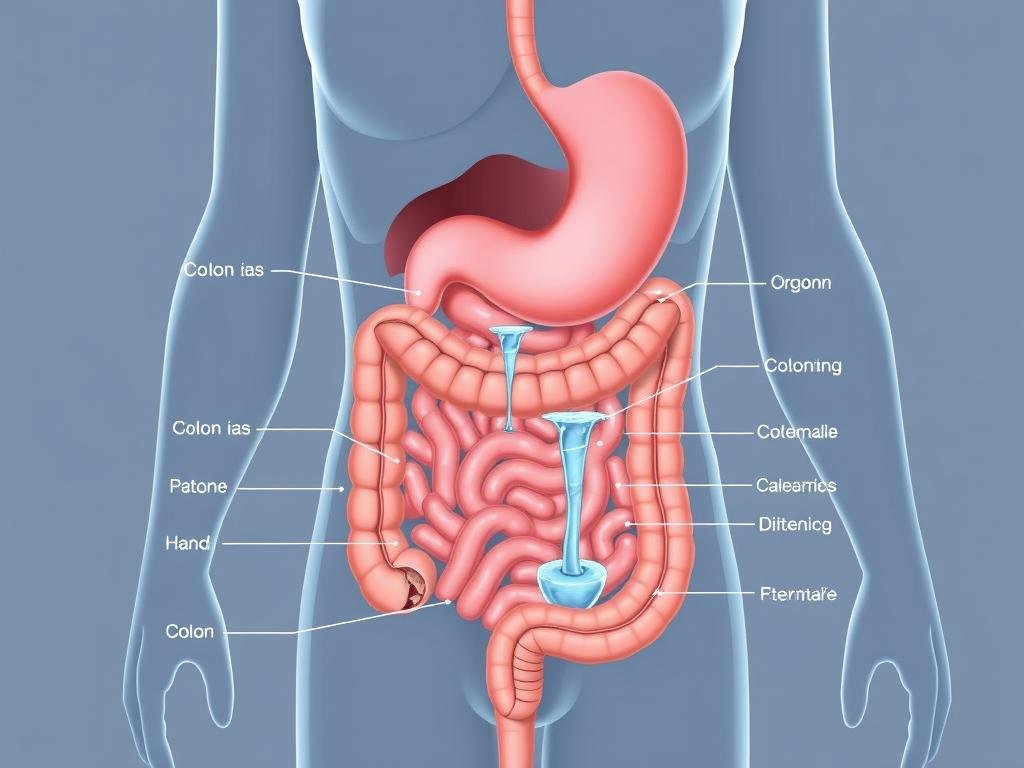ผู้ผลิตอุปกรณ์วารีบำบัดลำไส้ใหญ่

What Is a Colonic Cleanse and How Does It Work?
ก colonic cleanse, also known as colonic irrigation or colonic hydrotherapy, is a procedure that involves flushing the colon with large amounts of water to remove waste material and alleged toxins. Unlike an enema, which affects only the lower part of the colon, a colonic cleanse aims to cleanse the entire large intestine.
During a typical colonic cleanse procedure, a practitioner inserts a tube into the rectum while you lie on a table. Large amounts of water—sometimes up to 16 gallons—flow through the tube into your colon. The water may be mixed with herbs, coffee, or other substances claimed to enhance the cleansing effect. After the water is introduced, it’s released like a regular bowel movement, carrying out waste material from the colon.
Proponents of colonic cleansing believe that toxins from your gastrointestinal tract can cause various health problems, such as arthritis, asthma, and fatigue. They claim that colon cleansing improves health by removing these toxins, enhancing your immune system, and boosting energy levels.

Different Methods of Colon Cleansing
| Method | คำอธิบาย | Administration | Supervision Required |
| Colonic Hydrotherapy | Uses specialized equipment to flush the colon with water | Performed by a colonic hygienist | ใช่ |
| Enemas | Injection of fluid into the lower colon to stimulate bowel movement | Can be self-administered | เลขที่ |
| Oral Supplements | Pills, powders, or liquids containing herbs and fibers | Taken by mouth | เลขที่ |
| Laxatives | Osmotic or stimulant medications that promote bowel movements | Taken by mouth | เลขที่ |
| Herbal Teas | Teas made from herbs like senna, cascara, or aloe | Consumed as a beverage | เลขที่ |

Potential Benefits and Risks of Colonic Cleansing
Claimed Benefits
- Removal of accumulated waste and toxins
- Improved digestion and relief from constipation
- Enhanced energy levels and mental clarity
- Potential weight loss assistance
- ปรับปรุงการทำงานของระบบภูมิคุ้มกัน
- Better absorption of nutrients
Potential Risks
- Dehydration and electrolyte imbalance
- Bowel perforation (tear in the rectum or colon)
- Infection from improperly sterilized equipment
- Disruption of beneficial gut bacteria
- Kidney damage in vulnerable individuals
- Nausea, vomiting, and abdominal cramping
Important: There is limited scientific evidence supporting the claimed benefits of colonic cleansing. The human body’s digestive system and organs like the liver and kidneys are designed to remove waste and toxins naturally without additional assistance.
Medical Perspective on Colon Cleansing
“It’s not something that you need to do to maintain the health of your colon. For some people, colonic hydrotherapy can actually be dangerous.”
Most gastroenterologists and medical professionals caution against regular colon cleansing. They emphasize that the colon is quite efficient at eliminating waste and maintaining a healthy balance of bacteria. In fact, disrupting this natural process through frequent cleansing may cause more harm than good.
Who Should Avoid Colonic Cleansing: People with certain medical conditions should never undergo colonic cleansing procedures, including those with:
- Diverticulitis
- Crohn’s disease or ulcerative colitis
- Recent colon surgery
- Hemorrhoids or rectal/anal fissures
- Heart or kidney disease
- Severe hemorrhoids

Expert Opinions from Gastroenterologists
Leading medical experts have weighed in on the practice of colonic cleansing, and their opinions largely align with scientific evidence rather than anecdotal claims. Here’s what gastroenterology specialists have to say about this controversial practice:

Dr. Robert Bresalier
“The colon is already an efficient machine that helps keep you healthy. The idea behind colon cleansing is that you can flush out toxins, but experts don’t consider that to be effective. You may think you’re getting rid of toxins, but instead, you’re removing the bacteria that keep you healthy.”

Dr. Anuradha Bhama
“Our bodies are equipped to cleanse themselves. In rare cases, colonic cleaning via hydrotherapy can result in perforation of the colon. This risk increases if the procedure is performed by someone without proper training.”

Dr. Sang W. Lee
“Many people think by getting rid of fecal material, they are getting rid of toxins in the body. That is not true at all. As we understand more about microbiome, we know there are both good and bad bacteria that reside in our digestive system. Having colonics may disturb that balance.”
Medical Consensus: The medical community generally agrees that there is no scientific evidence supporting the need for colonic cleansing in healthy individuals. The only medically necessary colon cleansing is the bowel preparation required before a colonoscopy or certain surgical procedures.

Natural Alternatives to Colonic Cleansing
If you’re concerned about digestive health but wary of colonic cleansing procedures, there are several natural, evidence-based approaches to support your digestive system without the associated risks:
Dietary Approaches
- Increase fiber intake: Consume more fruits, vegetables, legumes, and whole grains to promote regular bowel movements.
- Stay hydrated: Drink plenty of water to help soften stool and support digestive function.
- Probiotic foods: Include yogurt, kefir, sauerkraut, and other fermented foods to support healthy gut bacteria.
- Limit processed foods: Reduce consumption of highly processed foods, which can slow digestion and contain additives.
- Prebiotic foods: Consume foods like garlic, onions, and bananas that feed beneficial gut bacteria.

Lifestyle Modifications for Digestive Health

Regular Exercise
Physical activity stimulates intestinal muscles, helping food move through the digestive system. Aim for at least 150 minutes of moderate exercise weekly to support digestive health and overall wellbeing.

Stress Management
Chronic stress can disrupt digestive function. Practices like meditation, deep breathing, yoga, or tai chi can help manage stress and support healthy digestion.

Proper Hydration
Adequate water intake is essential for digestive health. It helps break down food, absorb nutrients, and soften stool. Aim for 8-10 glasses of water daily.
Explore Natural Digestive Support
Looking for gentle, evidence-based approaches to improve your digestive health? Learn more about dietary changes and lifestyle modifications that can support your digestive system naturally.

Frequently Asked Questions About Colonic Cleansing
Is colonic cleansing safe?
Colonic cleansing carries several risks including dehydration, electrolyte imbalance, bowel perforation, and infection. Medical professionals generally do not recommend colonic cleansing for healthy individuals. The procedure is particularly dangerous for people with certain medical conditions like inflammatory bowel disease, recent colon surgery, or kidney disease.
How often should someone get a colonic cleanse?
Medical professionals generally do not recommend colonic cleansing as a regular practice. There is no scientific evidence supporting the need for routine colon cleansing in healthy individuals. The only medically necessary colon cleansing is the bowel preparation required before a colonoscopy or certain surgical procedures.
Can colonic cleansing help with weight loss?
While some people report temporary weight loss after colonic cleansing, this is primarily due to the removal of water and stool weight, not fat loss. Any weight lost is typically regained quickly as you eat and drink. There is no scientific evidence that colonic cleansing contributes to sustainable weight loss.
What’s the difference between a colonic and an enema?
An enema involves introducing a small amount of fluid into the rectum and lower colon to stimulate a bowel movement. It affects only the lower portion of the colon. A colonic cleanse (colonic hydrotherapy) uses larger amounts of water to flush the entire colon and requires specialized equipment and a practitioner to administer it.
Are there any situations where colon cleansing is medically necessary?
The only medically necessary colon cleansing is bowel preparation before procedures like colonoscopy or colon surgery. This ensures the colon is clear of solid matter so the doctor can clearly see the colon walls. These preparations are prescribed by physicians and follow specific medical protocols.
Still Have Questions?
Digestive health concerns should be addressed with a qualified healthcare provider who can provide personalized advice based on your specific health situation.

Conclusion: Making Informed Decisions About Colon Health
The concept of colonic cleansing has been around for centuries, but modern medical science offers little support for its purported benefits. While proponents claim it can detoxify the body and improve health, medical experts emphasize that the human body—particularly the colon, liver, and kidneys—is already well-equipped to eliminate waste and toxins without additional intervention.
When considering any digestive health practice, it’s important to weigh potential benefits against risks. For colonic cleansing, the risks include dehydration, electrolyte imbalance, bowel perforation, and disruption of beneficial gut bacteria. These risks generally outweigh any potential benefits, especially when safer alternatives exist.
Instead of colonic cleansing, consider evidence-based approaches to support digestive health: consuming a fiber-rich diet, staying properly hydrated, engaging in regular physical activity, managing stress, and including probiotic foods in your diet. These natural methods support your body’s inherent cleansing systems without introducing additional risks.
If you’re experiencing digestive issues such as constipation, bloating, or irregular bowel movements, consult with a healthcare provider before attempting any form of colon cleansing. A qualified medical professional can help identify the underlying cause of your symptoms and recommend appropriate, evidence-based treatments.
Prioritize Your Digestive Health Safely
Concerned about your digestive health? Speak with a qualified healthcare provider who can offer personalized advice based on your medical history and current health status.

